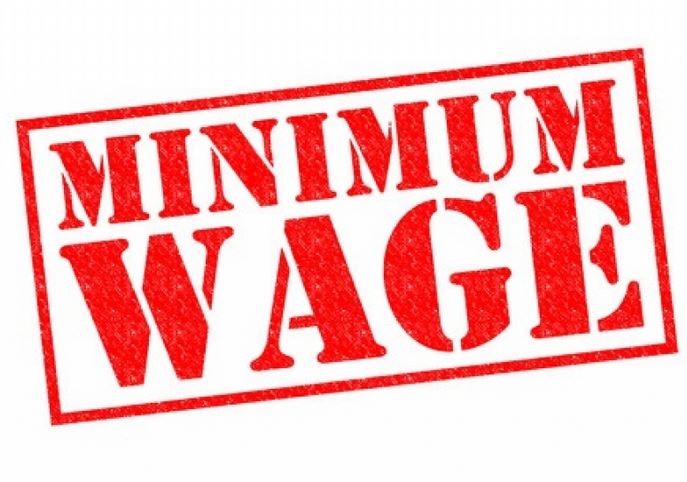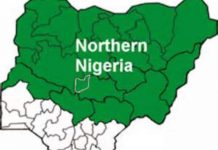As Nigerian Labour Congress (NLC) and the Trade Union Congress (TUC) gear up for nationwide strike to protest discrepancies arising from the National Minimum Wage, and the Federal Government urging its Ministries, Departments and Agencies (MDAs) to implement payment of approved salary structures ahead of the conclusion of the assignment given the committee on consequential adjustment, a new drama seems be unfolding in Labour -government relationship.
This was its committee on consequential adjustment for the unapproved salary structures to determine the adjustments on salaries of public servants who earn well above N30,000 minimum wage continues to engage on how the assignment can be concluded on schedule.
The unapproved salary structures include, those operated by Nigerian National Petroleum Corporation (NNPC), Federal Inland Revenue Service (FIRS), Central Bank of Nigeria (CBN), Debt Management Office (DMO) among others, while the approved structures are the Consolidated Public Service Salary Structure (CONPSS), Consolidated Health Salary Structure (CONHESS), Consolidated Research and Allied Institutions Salary Structure (CONRAISS), Consolidated Tertiary Institutions Salary Structure (CONTISS 11) and Consolidated Tertiary Educational Institutions Salary Structure (CONTEDISS).
However , the Executive Chairman of National Salaries, Incomes and Wages Commission, Chief Richard Egbule, believes that any salary structure that falls outside the approved ones would have wait for the conclusion of negotiations between the Federal Government and the Joint National Public Service Negotiating Council on the consequential adjustment.
He also threw more light on various issues concerning the minimum wage, while urging labour to put its planned strike on hold in the interest of workers they are trying to protect.
He also spoke on other issues.
Rumours on minimum wage
Some people went as far as thinking that the Federal Government has not been sincere in implementing the minimum wage. I know that you are aware that a committee was set up to negotiate with labour on consequential adjustment that could arise from the implementation of the minimum wage.
But that part is not in the law. The law itself states clearly that anybody employing 25 persons must pay the National Minimum wage and so, there is no excuse by any employer whatsoever for not paying. It is on the strength of that that the president has approved that the implementation should take immediate effect.
When exactly will it take effect?
When I said the federal public servants, I mentioned the particular salary structures that are affected. These are the salaries that are less than N30,000 per month as at April 18, 2019.
The others who earn more than N30,000 per month will get their salaries adjusted somehow after the conclusion of the negotiation that is ongoing. That is the real issue. So, the law says that you can’t pay anybody below N30,000 and in compliance with the law, all those earning less than N30,000 as at April 30, 2019 must have their salary adjusted.
The process of payment is a matter of salary administration. It takes effect from April 18, 2019.
Labour’s insistence on 66%
The issue of 66 per cent was a work-back from the N30,000 per month that was given by government or rather approved after due process of the National Minimum Wage Committee. At the point of increasing the last minimum wage of N18,000 per month during the process of negotiation, it was never mentioned that that amount should be increased by any percentage. We didn’t say let’s increase N18,000 per month by 100 per cent or by 50 per cent or by 30 per cent. Then we started negotiating downwards. What happened was that there was a proposal of a minimum wage of a certain amount and then the committee started looking at the various economic issues including the ability of government to pay. Not only government, but Micro, Small and Medium Enterprises (MSMEs). We said that those who can accommodate N30,000 per month should be able to pay it. But they worked it back and said it is an increase on 60 per cent or 66 per cent.
Let me say this, this is supposed to be reserved for negotiation. Let’s even assume that we agreed on 66 per cent. Do you know the implication? When you give somebody N12,000 at the lowest level you might end up giving another N200,000 at the highest level. How can you justify that?
This government is about the only government that I know that has tried to grant the issue of implementation. To make sure it doesn’t stop, they presented a budget.
And they based it on certain principles worked out by the Rewane Committee comprising the egg-heads in the Nigerian economy. Budget is a law. I hope you know that.
So, all negotiations must be geared towards using what is available in the budget to do the implementation. So, in order to implement the National Minimum Wage which is a law, we don’t want people to have an idea that the government doesn’t want to implement it. We will go ahead, implement and then negotiate with them (labour). Whatever they think, what is feasible, what is possible we will be done.
What is government’s proposal?
Government, in dealing with the situation of consequential adjustment thought that if you give people N2,000 per month, a level of equity will be maintained if you give others N10,000 per month across the board. So, when these people get N12, 000 at the lowest level, others can get N12,000. It is on the basis of that the money was budgeted. But these people (labour) preferred percentage increase. And so the government has to ask them what they wanted. So, it is erroneous for them to demand 30 per cent from levels 7 to 14. What about the salary structures that I told you will not benefit because their 01 is already higher than N30,000? So, when you implement it and give 25 per cent to levels 15 and 17, that 25 per cent is likely to bring about N100,000 a month increase. This is because you gave somebody N12,000. How equitable is that? So, we said it is not possible. What the government has proposed is 5 per cent which is about N22, 000. So, if you give somebody N12,000 and another N22,000 you can understand that but not 12,000 and another taking almost N100,000.
Why consequential adjustment wasn’t part of tripartite committee negotiation
I am glad you mentioned tripartite committee. The tripartite committee consisted of the government, organised labour, Organised Private Sector. Organised Private Sector is not part of what is going on now. We are dealing with the issues in the public service. The Organised Private Sector had gone home to negotiate on their own. They couldn’t have negotiated it at the tripartite level because you can’t tell somebody in Chevron or some of these other organisations to come and negotiate for government or government to negotiate for them. So, the tripartite committee set the standard for the figure that is for the entire economy. National Minimum Wage is a law that covers the public and the private sectors. But once the standard is set, the public sector will go away and do their own thing. The private sector will go away and do their own thing. That was why it was not negotiated. And naturally, it hasn’t been done like that because not only have I been or was I the secretary of the last tripartite committee in 2,000 when the first review under the current political dispensation took place during President Olusegun Obasanjo from N250 per month to N5,500. Then in 2011 I was the secretary of the tripartite committee when it moved from N5,500 to N18,000. And now this one I was a member secretary when we moved it from N18,000 to N30,000. What happens is sometimes there is a coincidence of negotiating salary adjustments which is a different thing from consequential adjustment of salaries arising from minimum wage.
If you want to review salaries based on the last collective agreement you had it is a different thing. But all over the world, you don’t just review salaries because minimum wage has been reviewed. So, this is an adjustment relating to the minimum wage. It can only be carried out by the employers and the private sector employers are not to do that for the public sector. That is why the tripartite committee could not handle it.
Government commitment to stopping strike
For me, it is not about strike. It is about the welfare of workers because even if you go on strike for 100 days, it will still end up at the negotiating table. So, this time is to look at issues objectively. Where are we today as a country in terms of our capability to deal with financial resources? Are we doing very well. So, it is for us as leaders to ensure that people are gainfully employed. To do that you must ensure that the government is capable of paying what you want them to pay. So, what the government has done and will always do is to dialogue with the union and let them see its position in terms of its financial capability to absorb what they are asking for. In fairness to anybody if you are hungry you’ll want a basketful of food but when you get to the farm and you don’t see so much, the little you see you bring it home and eat it hoping that you will get a better deal next time. Government is very sincere otherwise it wouldn’t have set up a committee at a very highest level headed by the head of service. In fact, the head of service is the alternate head. The real head of the committee is the secretary to the government of the federation. So, government is very sincere. To add to that, we did not hide anything. Whatever is available has been shown to labour. And we expect them to be sincere because the majority of those that will suffer are the people they want to protect. Even if it is one naira addition now is it not better than not having anything at all? I think the earlier the better for us.







